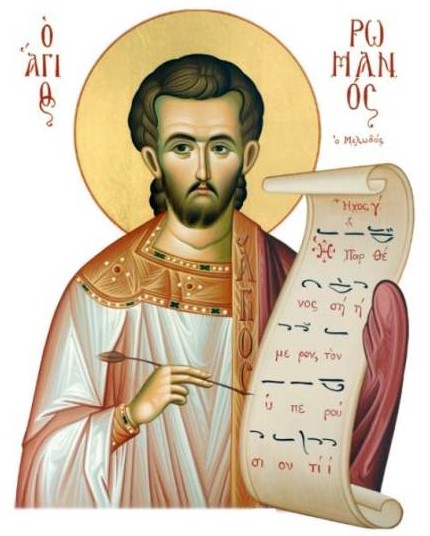
 |
SYNAXIS.INFO • Orthodox Christian Worship ResourcesEducational Materials for Clergy, Readers, Ecclesiarchs, Chanters, Choir Directors |
The Ninth Hour* *In the usage of the Sabbaitic Typicon, the Ninth Hour is almost always appointed to be read before Vespers. There is no dismissal, but we begin Vespers at "Come, let us worship...". If we do not read the Ninth Hour, we begin Vespers with an opening blessing and the Trisagion Prayers. Vigils, when appointed, consist of Great Vespers and Orthros. |
The Ninth Hour*
*During Great Lent, on weekdays we do not serve the Divine Liturgy. Instead, we read the Hours and Typica. According to the Typicon, the Third, Sixth and Ninth Hours, followed by the Typica, are read instead of the Liturgy, and we can either have a dismissal and a break at the end of the Typica, or immediately continue with Vespers. If there is a full dismissal after the Typica, we should begin Vespers with an opening blessing and the Trisagion Prayers. |
|
Great Vespers |
Daily Vespers |
Lenten Vespers |
| Opening blessing, followed by "Come, let us worship..." | Opening blessing and Trisagion Prayers. "Come, let us worship..." | [Opening blessing and] Trisagion Prayers. "Come, let us worship..." |
| Psalm 103 (Bless the Lord, O my soul) is appointed to be sung at Great Vespers. There is a divergence of opinion among liturgists, with some claiming that this should be sung at all Great Vespers, while others claim that it should only be sung if Great Vespers is accompanied by Orthros in a Vigil service. (Evidence shows that singing Psalm 103 is a distinctive feature of Great Vespers, even if there is no Vigil.) | Psalm 103 (Bless the Lord, O my soul) is read. | Psalm 103 (Bless the Lord, O my soul) is read. |
| The Great Litany (Synapte) of Peace is sung. On Great Feasts we should consider singing special melodies to add a distinctively festal nature to the service. | The Great Litany (Synapte) of Peace is sung as usual. | The Great Litany (Synapte) of Peace is sung as usual. We do not sing lenten melodies for this litany. |
| The First Kathisma reading from the Psalter is then done. According to the Typicon, we sing the First Stasis (Blessed is the man) on almost all Sundays, and we can either sing the other two Stases or read them. (The second and thirtd Stases are omitted in standard parish practice.) At Great Vespers on weekdays, we read the appointed Kathisma. On Great Feasts we sing only the First Stasis of the First Kathisma. (On Sunday evenings and Vespers following any Vigil, there is no appoiinted reading of the Psalter.) | The appointed Kathisma reading from the Psalter is read. | The appointed Kathisma reading from the Psalter is read. Note that there is a different schedule of readings during Great Lent. |
| The Psalms beginning with "Lord, I have cried" are sung (antiphonally by the right and left choir). The remaining verses are sung quickly by the choirs alternately, and the appointed stichera, Doxasticon and Theotokion are sung. At Great Vespers, "Lord, I have cried" is sung to longer, stately melodies. | The Psalms beginning with "Lord, I have cried" are sung as at Great Vespers, but at Daily Vespers we sing shorter melodies instead, as there is no Festal Entrance. | The Psalms beginning with "Lord, I have cried" are sung as at Great Vespers, but at Daily Vespers we sing shorter melodies instead, as there is no Festal Entrance. There is a variant practice of simply reading "Lord, I have cried" up to the point where the stichera are sung. |
| "O gladsome light" (O gentle light) is sung by both choirs at the Entrance of the priest. | "O gladsome light" (O gentle light) is read by the Reader. | "O gladsome light" (O gentle light) is read by the Reader. |
| The Prokeimenon of the day is sung. | The Prokeimenon of the day is sung. | The Prokeimenon of the day is sung. |
| Parable readings, if they are appointed | Parable readings, if they are appointed | |